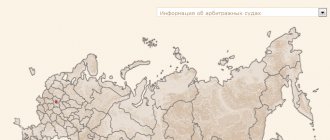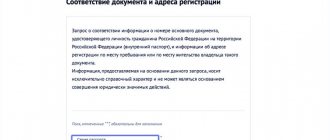The essence of the work of the unified notary information system
To formalize the owner's right, it is necessary to have an idea of the state of the process. Searching for inheritance cases is not the only goal pursued when creating a unified database for searching for inheritance. This is no less popular function, as is the search for heirs who have the right to claim a share of the inheritance. Once you have access, it's easy to do.
The search for heirs is simplified if there is a will where personal data is indicated. But if you have to divide the inheritance according to the law, it is sometimes difficult to find out which notary has opened the inheritance case. Knowledgeable people turn to the registry, which states not only this. As a result, searching for a probate file is simplified to simply filing a request and waiting for a response. The register is an archive that stores information about inheritances registered through notary offices registered in the Russian Federation.
What does the concept of “inheritance” mean?
An “inheritance” is considered to be property or rights that previously belonged to one person, but after his death must be transferred to the possession of his heirs. Acquired property is inherited on one of two grounds:
- according to the will drawn up by the deceased during his lifetime;
- legally, if the deceased did not have time to leave the document on the distribution of property.
The testator himself has the right to transfer property to any persons, even those who are not his relatives. Heirs can be:
- legal entities and individuals;
- foreigners and Russians;
- state (if the heirs were not identified, or the deceased decided so).
Important! The will is drawn up by a notary in two copies. One remains in the custody of the notary himself, the other is given to the testator. In the case of a will, all property goes to the heirs listed in it according to the specified shares
In the absence of a document, the authorized bodies first search for possible heirs, and then distribute the entire property array between them according to:
In the case of a will, all property goes to the heirs listed in it according to the specified shares. In the absence of a document, the authorized bodies first search for possible heirs, and then distribute the entire property array between them according to:
- order of inheritance;
- legal provisions;
- other reasons.
Although wills are drawn up during the life of the owner, it will be possible to find out the final conditions and the array of transferred property only after his death. Witnesses are present when the document is prepared, but they must not disclose the contents of the document until after death.
Unified register of wills and inheritance cases in the Unified Information System
The database stores notes on operations carried out within the framework of inheritance cases. If the heirs were searched by a notary, registration data will be sent in response to the request. Any action from drawing up a will, opening paperwork, entering into an inheritance, distribution of inheritance is displayed in the register, which is very useful and convenient.
Why is a registry needed?
The register is needed in order to:
- Simplify the procedure for collecting documentation and searching for heirs. The register stores contact information, addresses, and registration information.
- Reduce the number of crimes. Previously, it was impossible to verify the certificate of inheritance rights.
Since the creation of the unified register, the number of frauds associated with entry has decreased by almost five times
Who does this concern?
In fact, the register is necessary for several categories of subjects at once. Useful information:
- For heirs: the question of how to find out whether an inheritance case has been opened is being resolved.
- For notaries: it makes it easier to search for inheritance and for other notarial procedures.
- Law enforcement agencies: establishing the reliability of certificates of inheritance rights in criminal cases of fraud.
- Courts and bailiffs: to verify the certificate of inheritance by law and collect debts in accordance with a court decision.
For each category, only a few examples of reasons for applying to the registry for information about inheritance are given.
How to find out information about inheritance?
There is an Internet service that allows you to obtain sufficient data about the inheritance by accessing the registry. All you need to do is go to the website, fill out the fields to form a request and submit your application. The registry system will automatically find everything that has ever been mentioned by a notary. This is not only about searching for heirs under a will. The register contains notes about cases when the inheritance was actually entered into (without notarial participation).
Access to information in the Unified Information System
The service is free. There are also no restrictions on categories of subjects. This is the simplest answer to the question of how people learn about the opening of inheritance cases. An individual can quickly find an inheritance in the registry if the testator has died. Notaries, investigators, banks, judges and bailiffs also search for heirs using the registry.
Who can receive information about the opening of a case?
Despite the confidentiality, the information is available to any category of citizens. It is enough to enter the last name, first name and patronymic of the deceased in the appropriate fields. An extract from the register contains information about the certificate, but does not concern the value of the inheritance. Authorized persons, government officials, notaries, and courts have the right to learn in detail about an open will. But ordinary citizens are also classified in this aspect.
Outsiders
A publicly accessible register helps determine which notary is handling the inheritance case. The register also indicates the number of the inheritance certificate. The notary's office will tell you what is included in the inheritance, if the applicant has sufficient rights to use confidential information from the register. Heirs claiming inheritance under a will, with a mark in the register upon presentation of a passport, will easily achieve what they want.
Relatives
The unified notary information system is open to everyone. But as for such data as the value of the inheritance, location, list of applicants, it is closed from outsiders. But if you go to the notary office and present evidence of family ties, the authorized person submits a request to the registry, and an extract comes from the registry indicating everything that is needed to enter into an inheritance.
Information at the request of state and municipal authorities
When registering an inheritance based on the fact of ownership of property, the procedure is carried out with the involvement of the leadership of local self-government bodies. Officials also need to conduct a check, for which they need to know how to find a probate file. The Federal Chamber of Notaries issues documents based on official requests. For this purpose, a corresponding statement is written. The paper is delivered to the reception area. A receipt is marked and an entry is made in the incoming correspondence log.
Information on individual requests
It is superficial, but gives an understanding of the most important points, indicating what needs to be done next. In the Unified Register of Wills, inheritance cases are registered, numbered and dated, which is displayed in the search program after entering the initial data. Knowing that the inheritance is available, it is enough to contact the authorities authorized to issue the certificate. This must be done within six months. The starting point is also contained in the register - the date of opening of the inheritance.
For what purpose was such a service created?
The offered service is quite convenient, and you can get information about the inheritance there very quickly. The creation and filling of the registry had several goals:
- providing assistance in finding the necessary documents relating to testamentary acts;
- reduction in the number of crimes related to receiving an inheritance.
Immediately after the introduction of the service, the number of crimes of this nature decreased by 4.5 times. Numerous violations were identified related to the fact that documentation was completed retroactively or notaries entered into a criminal conspiracy with fraudsters, drew up false papers and subsequently received property that did not legally belong to them. A special advantage was that the number of trials on this issue decreased, and all documents in notary offices were systematized and entered into a special register.
How to use the service?
The search works by the testator's last name. As a result, you can find the notary who opened the inheritance (also indicated in the register). Further actions are stipulated by the Civil Code. Having appeared in person at the place of opening of the inheritance indicated in the register, the applicant writes a statement. 6 months from the moment the testator is officially considered dead, a document is issued on the basis of which the property is re-registered to the heir.
How to find out if the deceased left an inheritance?
There is no database of heirs in Russia, and cannot exist. A written expression of will allows you to appoint any person, not necessarily a relative, as a legal successor. Therefore, the successor is interested in accessing the registry in the first place. Having found out the address of the notary at the location of the inheritance (opening of the inheritance case), applicants go through the procedure of obtaining a certificate of ownership. The register stores information about the existence of a will and inheritance.
Nuances you need to know when entering data
To obtain the registration number of the required document, the full name of the testator is sufficient. Next, other applicants are being sought for inheritance. Before checking the certificates of inheritance rights for accuracy, make sure that the full name matches the person you are looking for. This data is often repeated. The service issues certificate numbers of inheritance rights according to the law for namesakes. Dates of birth and other information must be compared to identify the testator.
What information should be contained in the register?
By turning to this option for clarifying information, the client will be able to find out not only about the availability of documentation under the will, but also obtain additional information. In particular, people will be able to resolve issues related to the preparation of two testamentary acts at once. The document that was issued later will be considered official.
The important point is that all adjustments and emerging additions and changes are made to the document immediately. The following data can be specified as mandatory information that must be present in the register:
- Full name of the person who made the will;
- Full name of the person who certified the will;
- legal address of the notary office where the document is stored;
- document number and date;
- dates when amendments were made to the act at the request of the testator;
- month, day and year when the documents were closed.
It is important to note that there is no information about the property transferred as an inheritance in the registry, including size and cost.
Is it possible to find out about the presence of a will if a person is still alive?
No, it’s easier to wait until it appears in the register of open inheritance cases. Data about future inheritances are not disclosed because they are considered an absolute secret for everyone except the will-maker and the notary. There is no such information available in the online information retrieval system. There is a database for storing registration records of executed wills, but it is accessible only to a notary.
Those claiming compulsory share have nothing to worry about. The right is here to stay. For the rest, all you have to do is be patient and then access the registry again. Data are recorded immediately after death. In order to carry out the procedure for entering into an inheritance correctly and the result is undeniable, it is enough to hire a lawyer specializing in inheritance matters, draw up a power of attorney and instruct him to carry out the necessary actions.
If a will is not found
In this case, it is more likely that it simply does not exist. Otherwise, there would be a mention in the register. Mistakes also happen, such as, for example, when registering an inheritance without actually notary support. But if the existence of an expression of will during life is not established and a mark is not made in the register, this does not mean that the inheritance is unavailable.
In such situations, a notary will help, and the division of property will be carried out according to the law in order of priority. The presence of priority applicants does not mean that you need to abandon the idea. They will issue a refusal, agree to compensation, will be found unworthy, or may even die, no matter how cruel it may sound. Therefore, the verification and search will have to be resumed after the death of the testator.
Why is there no information about the inheritance in the registry, although the person died a long time ago?
A person who owns nothing will leave nothing but debts. Creditors have the right to claim debt if the register contains a note indicating acceptance of the inheritance. No one will look for successors to return money or material assets. The Unified Information System does not contain any mention of the property of the deceased, if it does not exist documented.
Let's assume that there was a man. He used the car by proxy, gave the apartment to his common-law wife, and issued a deed of gift for the house when he was still alive. In fact, there is a lack of material benefits, although he enjoyed them. For example, notarial activities began on time. A case is opened, search work is carried out, and it turns out that there is actually no inheritance. No notification is sent to the registry. Registration is not possible.
Should a notary search for heirs?
- if the notary receives a message about the death, then he is obliged to send notifications to all known applicants;
- the regulatory act gives the right to search and call relatives or other heirs by posting messages in the media and other sources;
- The law does not provide for the obligation to establish the existence of other heirs, so it is impossible to force a notary to take such actions.
To exercise his powers, the notary must obtain information and documents indicating the death of the owner. This may also be an oral appeal from persons who claim assets, but do not have the right to receive a form from the registry office. However, in practice, the fact of opening an inheritance will be documented.
The obligation to notify arises only after the death of the copyright holder if reliable information is received about the place of work, address of permanent or temporary residence of the heirs. The ability to obtain such data is limited in the following ways:
- from citizens who have applied to accept an inheritance (they can provide information about close and distant relatives, the location of applicants);
- from the contents of the testamentary form, since the testator must indicate who can count on the registration of property after his death;
- according to information received from requests for a list of assets (for example, an extract from the Unified State Register of Real Estate may contain information about persons who acquired shared ownership during the purchase or privatization of housing).
If the specified information is available, the notary is obliged to send written notices to existing addresses of residence or place of work. In practice, it is impossible to monitor the execution of such authority, and legislative acts do not contain measures of liability for violation of the procedure for sending notifications. The regulations do not contain precise criteria by which the accuracy of data on the addresses and places of work of potential heirs should be verified.
If a notice has been sent to the heirs, the following scenarios are possible:
- upon receipt of a notice from a notary, the interested party can contact the notary's office and take part in receiving the money and property assets of the deceased;
- the receipt of applications based on the results of the distribution of notices may change the procedure for acquiring rights (for example, if a child of the deceased was identified in this way, he will immediately be included in the first inheritance line);
- a citizen who has received notification of the existence of an inheritance after it has been distributed will be able to restore the period of entry through the court and present a demand for the transfer of part of the property to him or for the payment of compensation;
- Each potential heir has the right to refrain from submitting an application or submit a waiver of his share.
Information about who declared their right, which heirs are included in the text of the testamentary form, can also be obtained by other persons. Each participant in the case can familiarize himself with its materials and verify the legality of the procedure. This will allow you to go to court to recognize individual heirs as unworthy, challenge the will, promptly provide information about other applicants, and exercise other rights.
The fact of inheritance is certified by issuing a certificate by a notary. If the property was actually received by other heirs, applications after 6 months will be satisfied only if the court restores the period. It makes no sense to refer to the lack of notification from the notary or other heirs, so other evidence will have to be used in court.
How did you search for inheritance cases before?
It was customary to draw up documentation in a certain place - where the testator lived based on registration. In extreme cases, it was a question of temporary registration or the place where the inherited mass is located. The authenticity of information about the inheritance could not be verified through the registry; one had to contact a notary, of whom, say, there were hundreds in Moscow. But if the case was found, the inheritance was formalized there. The territory of the Russian Federation is huge, which further complicated the search efforts.
The search took months. The death certificate didn't help. You know the city - a notary or a lawyer will help, it was still not known. Independent measures turned out to be costly and ineffective. Not knowing where the testator lived meant losing the inheritance, because there was no register, and one had to contact officials to submit a request to the leading notary body in the country, which also took time and cost money.
What changed?
The procedure has been simplified to a banal online application that anyone can submit. There is a full-fledged service for searching for inheritance cases and obtaining comprehensive information. The Federal Chamber of Notaries (FNC) has established a unified register for storing details of transactions executed by notaries in Russia.










